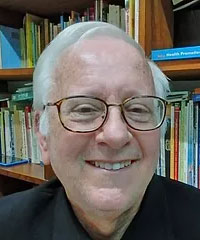INTERNATIONAL COLLABORATING CENTER

Submitted by Stephen Hamann, TRC
Opportunities and Threats to Cessation Success
Presenter : Professor Harry Lando is Distinguished International Professor, Division of Epidemiology and Community Health, University of Minnesota. In addition to his many awards, professional memberships, appointments, editorial accomplishments and consultancies, he has authored or co-authored over two hundred research articles, with cessation as one area of main focus since 1975.
Agenda : The meeting occurred from 13:00-16:30 hours on the afternoon of 4 August, 2011 at the Tobacco Control Research and Knowledge Management Center (TRC). After the introduction of Dr. Harry Lando, there were two brief presentations providing background regarding smoking cessation practice in Thailand:
- Dr. Suthat Rungruanhiranya presented, “Background on cessation efforts in Thailand”
- Dr. Jintana Unipan presented, “Quitline 1600”
Summary of Dr. Harry Lando’s Presentation :
In conclusion, opportunities for cessation include :
- Ensuring training in cessation methods for all health professionals
- Boosting free access to cessation support and medications
- Providing innovative research that shows best practices and leads to cessation improvements
- Dr. Lando noted that there are great opportunities for including cessation as an integral part of a comprehensive tobacco control program, and he urges Thai cessation professionals to continue their work to build more accessible and coordinated cessation services.
Presentation Discussion :
Following Dr. Lando’s presentation, there was a discussion session on cessation research and practice followed by a group picture of the meeting participants.

